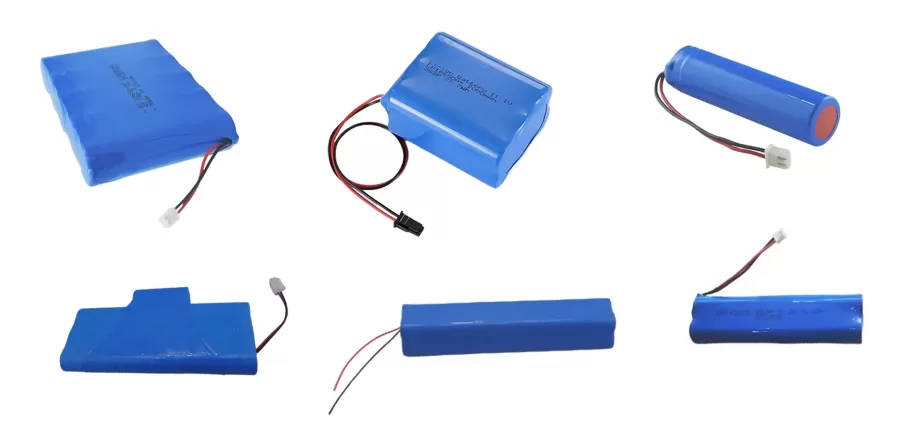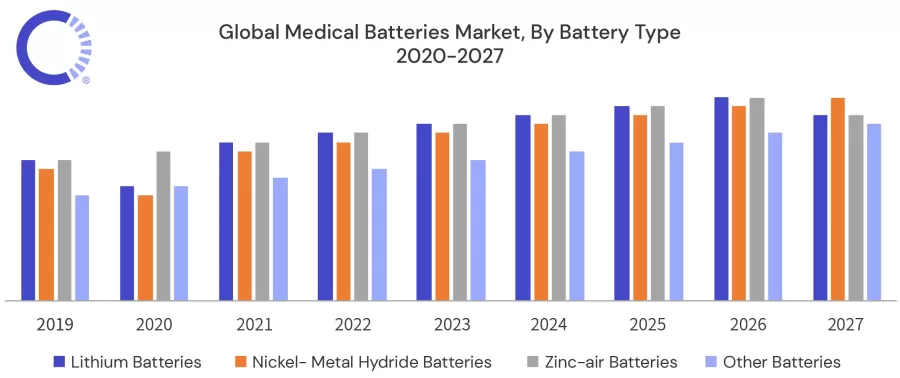Medical devices have made it possible for doctors to diagnose and treat patients more conveniently and mobilely. Besides, the patients intelligently manage their illnesses. The behind scene of these innovative and life-saving medical devices is one of the core central components: medical grade battery.
While medical device manufacturers are concerned about the quality of medical grade batteries, they are also interested in the definition behind medical grade batteries. The purpose of this article is to answer some basic questions about medical grade batteries for medical device manufacturers.
1. What is a Medical Grade Battery?
A medical grade battery is a specific power source, designed for use in medical equipment. It is an essential part of modern medicine and has improved the lives of millions of people around the world. These batteries are developed to meet stringent industry standards, which ensure reliability, safety, and longevity. Compared the regular consumer batteries, medical-grade batteries undergo rigorous testing and certification processes to ensure they are suitable for use in various medical applications. Check out this article for a comprehensive comparison between medical-grade batteries and regular batteries.

2. Applications for Different Medical Grades of Batteries?
The medical grade of a battery is determined by the risk level of the medical device and its specific requirements. For example, a pacemaker, which is a Class III device, requires a battery that can provide a continuous and reliable source of power for extended periods of time. A glucometer, which is a Class I device, can use a battery that has a shorter lifespan but is also less expensive.
The following table summarizes the different medical grades of batteries and their applications:
| Medical Device Category | Battery Grade | Medical Devices | Requirements |
| Low-risk medical devices | Class I | Hearing aids, glucometers, blood pressure monitors, thermometers, nebulizers | Low risk, low power consumption |
| Moderate-risk medical devices | Class II | Pacemakers, implantable defibrillators, deep brain stimulators, insulin pumps, nerve stimulators | Moderate risk, moderate power consumption |
| High-risk medical devices | Class III | Left ventricular assist devices, implantable cardioverter defibrillators, cochlear implants, spinal cord stimulators, brain stimulators | High risk, high power consumption, long lifespan |
The most important thing is that the medical grade of a battery is not the only factor that determines its suitability for a particular application. At the same time you should consider other factors, such as the size, weight, and shape of the battery. Additionally, the battery must be compatible with the medical device.
3. What Kinds of Batteries are Used in Medical Devices?
Different types of batteries are used in medical devices. The common battery chemistries in the medical field include lithium-ion (Li-ion ), nickel-metal hydride (Ni-MH), and zinc-air batteries. Li-ion batteries are popular due to their high energy density, long cycle life, and minimal self-discharge. Ni-MH batteries offer a good compromise between energy density and cost efficiency, while zinc-air batteries excel in providing extended runtimes for low-power devices.
Medical device manufacturers work closely with battery pack manufacturers to develop and utilize batteries that meet the stringent safety and performance standards for life-critical applications.
The table summarizes the different types of batteries used in medical devices:
| Battery Type | Advantages | Disadvantages |
| Lithium-ion | Lightweight, high energy density, rechargeable | Expensive, sensitive to extreme temperatures |
| Nickel-metal hydride | Rechargeable, long lifespan | Bulky |
| Alkaline | Inexpensive, readily available | Shorter lifespan |
| Silver-oxide | High energy density, long lifespan | Expensive |
| Zinc-air | Inexpensive, environmentally friendly | Shorter lifespan |
In general, lithium-ion batteries are used in medical devices that require high power, while alkaline batteries are used in medical devices that require low power. Nickel-metal hydride and silver-oxide batteries are used in a variety of medical devices, depending on the specific power requirements of the device.

4. How Long do the Medical Batteries Last?
The lifespan of medical batteries varies depending on some factors, such as the type of battery, the discharge rate, and the operational conditions of the device.
The following summary shows the guarantee period of quality for the different medical battery types:
- 5-10 years (Lithium-ion medical grade rechargeable battery)
- 3-5 years (Nickel-metal hydride medical batteries)
- 1-2 years (Alkaline medical batteries)
- 2-5 years (Silver-oxide medical batteries)
- 6-12 months (Zinc-air medical batteries)
Medical batteries request long-lasting power and excellent performance. Modern advanced technology has extended the life of medical batteries, meeting the demand for medical devices for extended periods. However, you can consult the battery manufacturers to get professional advice regarding the expected lifespan of their products.

5. What are the New Developments in Medical Grade Battery Market?
The medical battery market is continuously evolving to meet the growing needs of the healthcare industry. One notable advancement is the integration of smart battery technology, which enables communication between the battery and the device, providing accurate information about remaining battery life and optimizing power management. Additionally, the researchers are exploring the use of flexible and miniaturized batteries to address the demand for smaller and more comfortable wearable medical devices.
Notably, the medical grade battery backup has witnessed several advancements in recent years. These developments are aimed at providing reliable and uninterrupted power supply to critical medical equipment during emergency situations or power outages. There has been a trend towards using 21700 cells in medical-grade battery backups in recent years. This is due to the several advantages that 21700 cells offer over traditional 18650 cells.
21700 cells are larger in diameter and have a higher capacity than 18650 cells. This means that they can store more energy and provide backup power for longer periods of time. 21700 cells also have a lower internal resistance, which means that they can deliver more power and have a higher efficiency. The advantage is very important for medical applications, that medical devices receive an uninterrupted power supply.
As the advanced technology continues to overturn, more innovative solutions are used in medical grade batteries. The breakthroughs will drive improvements in performance, longevity, and patient care.
In summary, understanding the nuances of medical grade batteries is essential for medical device manufacturers. The battery manufacturers can provide healthcare professionals with reliable tools to deliver optimal patient care.


